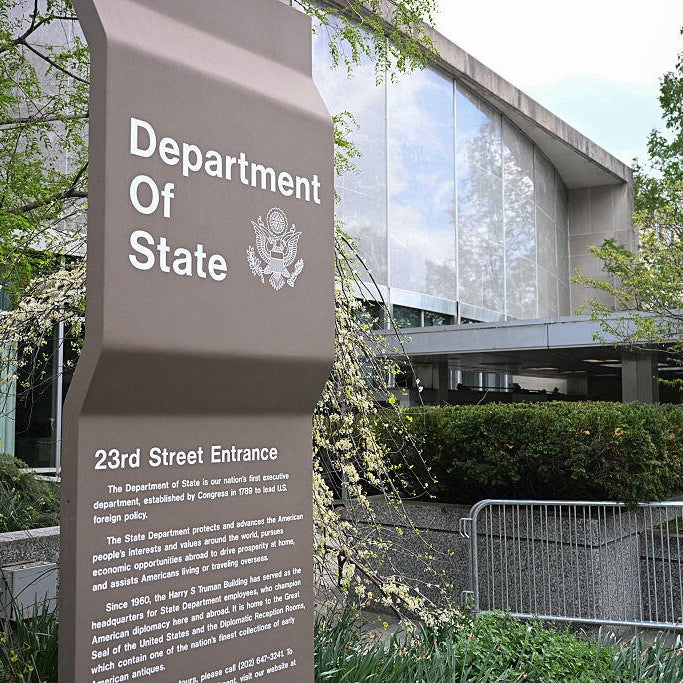State Department cuts 1,353 jobs in major staff reduction

The State Department's Major Workforce Reductions
The U.S. State Department has initiated a significant reduction in its workforce, with over 1,300 employees being laid off as part of a broader effort to cut the size of its domestic staff by approximately 15%. This move is part of the Trump administration’s larger strategy to reorganize the department and streamline operations.
The involuntary reductions include 1,107 civil service and 246 foreign service employees, according to an internal notice obtained by CBS News. The total number of departures, including those who opted for voluntary separation earlier this year, is nearly 3,000. The department is also closing or merging numerous U.S.-based offices and restructuring its organizational framework.
These layoffs, referred to as a reduction-in-force (RIF), have been anticipated for months. In March, officials submitted a reorganization plan to Congress, signaling the upcoming cuts. The administration claims these measures are necessary to eliminate redundant offices and refocus the department on its core responsibilities.
However, critics argue that the cuts could weaken the State Department’s effectiveness. All Democratic members of the Senate Foreign Relations Committee issued a letter to Secretary of State Marco Rubio, expressing concern over the impact on U.S. national security. They emphasized that strengthening the diplomatic corps is essential for maintaining American power and leadership globally.
Foreign service officers affected by the RIF will be separated within 120 days, while civil service officers will leave within 60 days. The long-planned layoffs followed the Supreme Court's decision to allow the Trump administration to proceed with its plans to reduce the federal workforce, effectively halting a lower court order that had paused similar actions at other agencies.
Department staff were informed of the changes through a message from Deputy Secretary of State Michael Rigas, who thanked departing employees for their service. RIF notices began being distributed on a rolling basis, and some employees were instructed not to work remotely on Friday, instead reporting to their offices with all necessary equipment.
Some bathrooms in the State Department featured messages urging remaining staff to "resist fascism" and uphold their oaths. These signs highlighted the emotional impact of the changes on the workforce.
Impact on Key Departments
The layoffs have particularly affected offices focused on human rights, refugees, and foreign assistance. Nearly all civil service officers in the Bureau of Population, Refugees, and Migration's office of admissions were let go, despite the office handling the resettlement of Afrikaners from South Africa—a priority for the White House. The Bureau of Democracy, Human Rights, and Labor's global programs office was also eliminated, along with its office of multilateral and global affairs.
Additionally, all leadership team members of the State Department's Coordinator for Afghan Relocation Efforts (CARE) office received RIF notices. CARE has relocated nearly 200,000 Afghan allies since 2021, and one employee lost her job just hours after giving birth.
There are still about 1,400 Afghan refugees or special immigrant visa holders at a U.S. military base in Doha, Qatar. While some hold SIVs, which exempt them from refugee admission restrictions, others remain uncertain about their future. The situation raises concerns about whether they will be allowed into the U.S., especially given the lack of clarity around the administration’s policies.
Reorganization and Streamlining Efforts
Following the RIF notices, the State Department will enter a transition period to implement the new organizational structure. Senior officials described the changes as aimed at streamlining the bureaucracy, reducing redundancies, and focusing more on foreign embassies and regional offices.
For example, multiple offices that handled sanctions will be consolidated into a single entity. While the officials acknowledged the value of the previous teams, they emphasized the need for efficiency and focus on the mission.
The Political Affairs bureau, which includes country-specific desks, remains largely unaffected. Another official noted that the department identified areas where natural efficiencies could be found, aiming to make the agency more effective and focused.
The State Department had previously informed lawmakers in May of its intention to eliminate about 3,400 domestic jobs and close or merge nearly half of its offices. The plan included integrating functions of the U.S. Agency for International Development into the State Department, a move that faced criticism from Democrats and humanitarian groups.
Pushback from Democrats and Staff
The broader cuts have drawn strong opposition from Democratic lawmakers, who argue that the moves could undermine American diplomatic efforts. Senator Tim Kaine criticized the approach, calling it a "willy-nilly effort to sack a whole lot of people."
Many department staff have expressed alarm over the changes. The American Foreign Service Association described the layoffs as "untethered from merit or mission," warning that such actions could signal a retreat from global engagement.
For foreign service officers, the RIFs are based on whether they worked in an impacted office on May 29. Some employees were reassigned, raising questions about fairness. One current employee questioned why those who no longer held certain positions would be penalized.
Senior officials emphasized that the process aims to preserve the dignity of federal employees and ensure that decisions are made in a functional and anonymized manner. Despite the challenges, the department remains committed to handling the changes with care.



Komentar
Posting Komentar